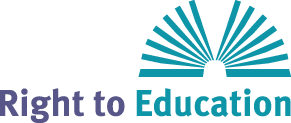On 7 July 2014, the UN Committee on the Elimination of Discrimination against Women (CEDAW) held a General Discussion on the Right to Education for Girls and Women, the aim of which is to commence the Committee’s process of elaborating a “General Recommendation on girls’/women’s right to education.”
Thirteen organizations from around the world, included the Right to Education Initiative, presented a written submission to CEDAW on ‘Privatization and its Impact on the Right to Education of Women and Girls,’ highlighting evidence from a range of countries showing that more boys are enrolled in schools than girls, a problem that is exacerbated by the increasing privatization of education. Privatization in many cases deepens gender discrimination in education because already marginalized and vulnerable groups, including women and girls, are more disadvantaged by private provision and are the least able to pay for services.
The right to education and lifelong learning is at the very heart of the 2030 Agenda for Sustainable Development because education, knowledge and learning are central to the dignity, growth and development of the individual. For centuries, education has been the great equalizer, a driving force of nation-building, and the engine of social, cultural, economic and technological progress. Today, however, beset by twin crises of equity and relevance, education as we know it is no longer fit for purpose.
Building on the Transforming Education Summit and the report of the International Commission on the Futures of Education, the present policy brief examines the current crisis in education in more detail and puts forward a vision and a set of guiding actions for countries and the international community to transform education. It concludes with two overarching recommendations for the consideration of Member States in their preparations for the Summit of the Future.
Ce document de recherche et d’orientation étudie certains aspects du droit à l'éducation qui pourraient nécessiter un ancrage plus solide dans le cadre normatif international et une expansion potentielle pour le 21st siècle. L'éducation numérique, la mobilité croissante des personnes, l'évolution démographique, le changement climatique et les attentes en matière de possibilités d'apprentissage tout au long de la vie ne sont que quelques-uns des domaines qui mettent à l'épreuve les limites du cadre normatif international existant. Aboutissement d'un cycle de consultations ouvertes, de séminaires et d'événements internationaux, ainsi que de recherches, ce document présente quelques-unes des tendances émergentes, des défis et des normes qui ont été discutés.
This policy-oriented research paper investigates some of the aspects of the right to education that might require a stronger footing in the international normative framework and potential expansion for the 21st century. Digital education, increasing human mobility, changing demographics, climate change, and expectations of opportunities for learning throughout life are just a few of the areas that are testing the limits of the existing international normative framework. The culmination of a round of open consultation processes, as well as international seminars and events, and research, this paper presents some of the emerging trends, challenges, and norms that have been discussed.
